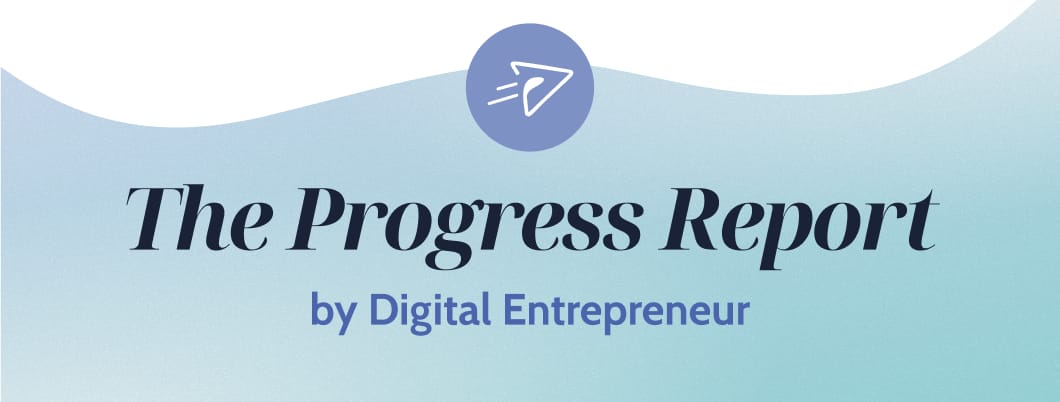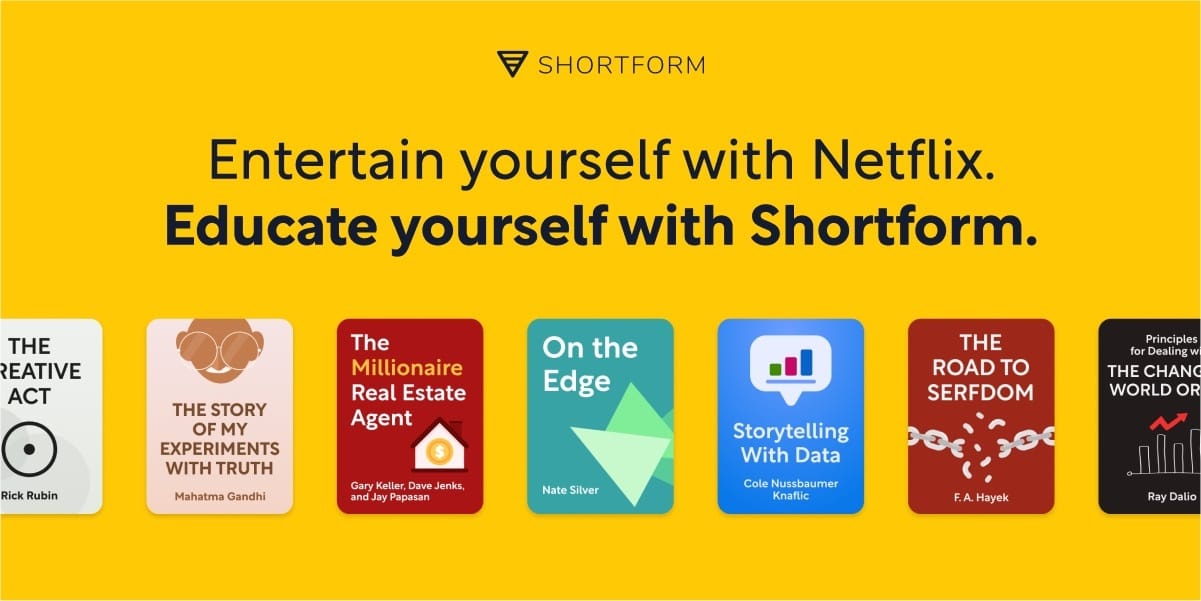
July 29, 2025
In partnership with

If your brain is anything like mine, it loves to run worst-case scenarios at the most inopportune times.
The client who might not renew. A yet-unaddressed cash flow gap next quarter. Whether you're even cut out for this whole founder thing.
I’ve talked about this before, but when re-reading that old newsletter, I realized I missed something…
Sometimes, entrepreneurial anxiety is just that. Anxiety.
Being a founder is hard on the mental and, for some, testing assumptions and hypotheses becomes a trap in and of itself.
You end up spending so much time thinking about (and guarding against) what could go wrong that you run out of room to consider how to make things go right.
Without meaning to further spike your heart rate: that's a mistake. A common one, but a mistake nonetheless.
Let’s deal with it.
In this newsletter:
An extremely meta story about the mental health of mental health-founders
Why emotional preparation is mission-critical startup infrastructure
Four resilience systems you can build before anxiety derails your progress
Sponsored
Educate yourself with Shortform
Whether you're interested in history, parenting, finance or something in-between, Shortform is the go-to app for learning all things nonfiction.
Shortform’s team of professional writers and editors distills the world’s most important books into expertly crafted guides that go way beyond the standard 1-pager; helping you truly digest and apply what you’ve learned.
If you’re ready to kick your learning into high gear, sign up for free below and get 20% off Shortform if you decide to get an annual subscription.
Weekly Insight

When Dr. Emily Anhalt and her co-founder, Alexa Meyer, were preparing to launch Coa, they did something that I love, but most founders wouldn’t consider.
They went to therapy together.
Not because they had problems. But because they wanted to build their partnership on positive communication and emotional transparency from day one.
“We called it founder pre-marital counseling,” Anhalt explains. They worked with a therapist who specialized in founder dynamics and had intentional conversations about their fears, values and personal breaking points.
Instead of waiting for tension to show up mid-journey, they built their relationship on understanding each other's emotional triggers before stress hit.
As someone whose experienced the deterioration of a co-founder relationship before, I can confirm: this wasn't just nice-to-have relationship building.
It was really clever business strategy.
Most founders prepare obsessively for the logistics of a startup but neglect the emotional preparation. As Anhalt puts it, “you're not just building a company. You're building yourself at the same time.”
The therapy sessions became a foundation for how they'd lead, make decisions and support one another through inevitable high-stress moments. And it worked.
When the usual founder pressures hit (funding stress, product pivots, team conflicts), they had systems in place to handle them without destroying their partnership or their mental health. (Emotional systems, and logistical systems)
Anhalt's broader philosophy became the backbone of Coa itself: treat emotional fitness like physical fitness. You don't wait until you're sick to start taking care of your body. Same applies to your mind.
📚 Related Reading
What makes entrepreneurs burn out by Eva de Mol, Jeff Pollack and Violet T. Ho | Identifies key factors causing entrepreneur burnout, including personality traits, misplaced passion and misalignment with roles.
Anxiety and coping in the entrepreneurship process by Neil A. Thompson, Marco van Gelderen and Laura Keppler | A qualitative study on how anxiety is experienced and managed at different stages of goal pursuit. Plus, a goal‑striving framework tied to decision points and coping cycles.
Entrepreneurs' stressors and well-being by Dominika Wach et al | Summarizes extensive research linking entrepreneurial stress to wellbeing, emphasizing coping strategies throughout the lifecycle of a startup.
Intent to Action
Anhalt's “pre-marital counseling” approach is brilliant, but what if you're flying solo or already have a co-founder relationship in place?
She advocates for building what she calls “emotional infrastructure” before you need it. It comprises four systems, which act like shock absorbers for the inevitable bumps on the founder path.
System 1: Name your specific fears
Most founders worry about “failure” in general. Anhalt pushes deeper. What exactly scares you?
Instability?
Judgment from peers?
Running out of money?
Co-founder conflict?
Get specific. Write them down. When you can name the fear, you can plan for it.
System 2: Practice “rejection therapy”
Deliberately seek out small rejections to build emotional calluses. Ask for a discount at a coffee shop. Request a meeting with someone way out of your league. Pitch an idea you know will get shot down.
Progressively graduate your requests until you’re comfortable asking about things you sincerely care about but don’t think are possible.
The goal isn't to get a yes. It's to learn that hearing no won’t kill you.
System 3: Keep a “hype doc”
Create a running document of wins, positive feedback and progress milestones. When anxiety hits, you'll have concrete evidence that you're not terrible at this.
Include screenshots of customer testimonials, revenue milestones, even small wins like “figured out that complicated integration.”
I do this with responses I get to this newsletter. When I’m getting hard on myself about writing something new, I refer back to it. It helps.
System 4: Build your circle of trust
Cultivate relationships with people who understand the founder journey. This includes founder peer groups (for people who get it), friends outside tech (for perspective) and a good ol’ therapist (for professional guidance).
Anhalt emphasizes the importance of variety here. You need different types of support for different types of stress.
I've had a lot of worries in my life, most of which never happened.
Closing Thought
Most founders think emotional preparation is “soft” business advice. And trust me, I get it.
But it’s this “soft” advice that sets you up to do the hard things. I mean, just think about how much more effective you are after a good night’s sleep.
The founders who build lasting companies aren't the ones who simply “tough it out” through every crisis. They're the ones who get vulnerable, then deal with the real concerns behind their emotions.
Next week, I’ll be off, hiking through Italy with my wife. So, naturally, I used it as inspiration for this newsletter. Next week’s about creating intentional downtime in order to stay sharp and make better decisions.
See you then.

